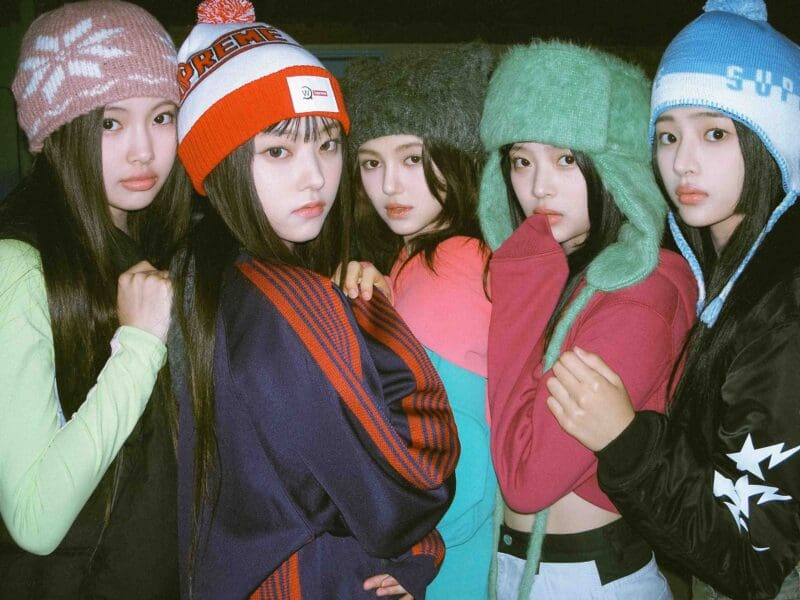
‘The Incomparable Rose Hartman’: Lens on fashion’s boldest explorer
Artist documentaries tend to fall into one of two categories. Some depict the life of their subject through biographical details; others let the artist’s story be told through their process itself. A subject like iconic fashion photographer Rose Hartman could only be portrayed through the latter technique.
Hartman’s life and process, as Øtis Mass’s feature debut The Incomparable Rose Hartman makes clear, are one and the same; not only is there no separating them, Hartman has done such a stunning job positing herself as the boldest explorer of fashion’s “Chiffon Jungle” that whatever life she may have had before taking on that burden no longer exists.
Emerging during the dual ascents of New York’s dance and high-fashion culture, Hartman radically altered the idea of what fashion photography could be. Through her photos of New York scenes like Studio 54 and Halston’s fashion boutique events, Hartman shifted the conversation about style away from the Old World hubs and towards more democratizing urban centers, where creative street urchins could be viewed as equals to celebrities, as far as fashionistas were concerned. Hartman was one of the first to puckishly reject the pristine world of the catwalk, defining fashion by shining a light on what lies behind the curtain and on the streets.
Nowadays, with the rise of fashion bloggers and livetweets of events like the MET Gala, that might not seem so revolutionary. But The Incomparable Rose Hartman effectively argues its subject was acting and shooting like a fashion blogger three decades before such a concept existed. And Hartman hasn’t slowed down since, with Ronald Sosinski going so far as to claim “the culture turned into what Rose is”, perpetually observing itself and immortalizing every moment, even as she keeps so much of herself hidden from that culture.
Biographical details about Hartman might be few and far between in the film, but the subjects who speak about Hartman nonetheless paint a vivid portrait. Diminutive yet bold, Hartman’s ability to literally shove her way to the front of any party has enabled her to get photos that cut right to the heart of a moment, telling intimate, unique stories about larger-than-life figures. That pushing drive in Hartman has placed her at the center of seemingly every modern fashion scene, but as Hartman and her friends attest, it has also kept anyone from getting too close to her for very long.
When you add in Hartman’s frank and frequently cantankerous nature, the effect can be even more alienating to those who aren’t as driven, or at least prepared to tolerate the side effects of that singular drive. Throughout the film, Hartman criticizes nearly everyone she encounters, from possible patrons who aren’t giving her photos the proper deference in a gallery show, to her editor for not knowing who some of her subjects are, to Mass himself, whom she calls “idiotic” for trying to get her to answer “perfunctory” questions she doesn’t believe will yield anything entertaining. Harman explains it in her own words thus: “I don’t want to be humanized, I want to come across as provocative.”
To be clear, it’s not that Hartman is an asshole. It’s just many of the things that regular humans view as a necessary part of interaction – small talk, feigned interest, or information about personal history – are viewed by Hartman as extraneous distractions from life’s more important things.
As Hartman tells her editor Marguerite Ruscito, her interest was always first and foremost “the subject”, whoever or whatever that may be. Everyone assembled for the film echoes this, emphasizing what differentiates Hartman from the paparazzi who so often dominate conversations about fashion & celebrity culture. Hartman never sought riches and never considered what the profit of any given photo might be; her aims were higher and more nebulous. To paraphrase a remark she makes in the film: she wanted to capture souls, if only for just a moment at a time. And so anything getting in the way of that, particularly anything about Hartman’s past before she dedicated herself to this goal, isn’t worth the energy.
That paucity of personal history and its short running time lend the film a light feel, but it works, given the fleeting nature of fame & style. You won’t come away from The Incomparable Rose Hartman knowing much in the way of facts about her accomplishments – instead, one’s left with a better sense of what it means to give your life to the pursuit of chronicling beauty & magnetism.







